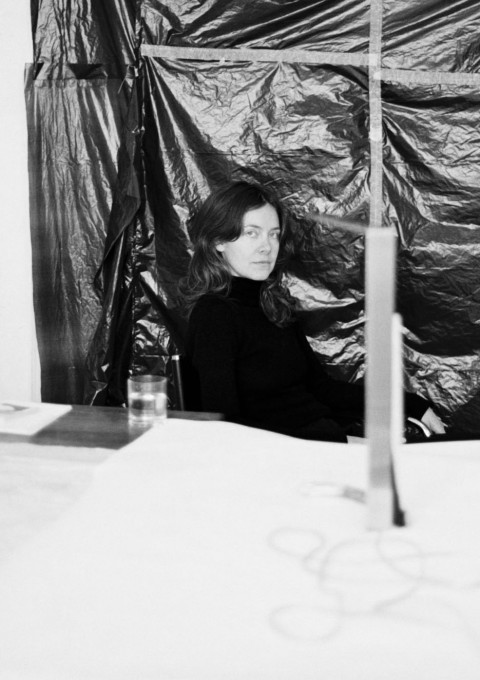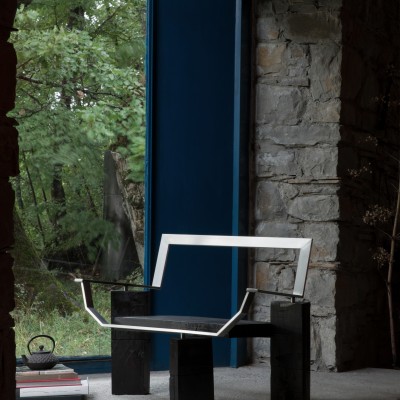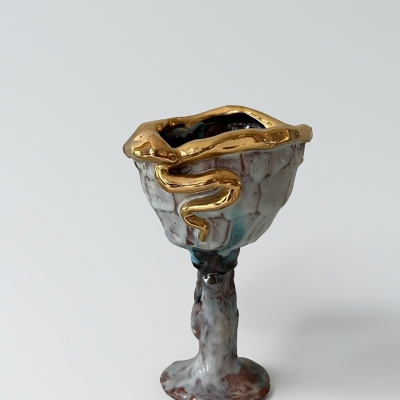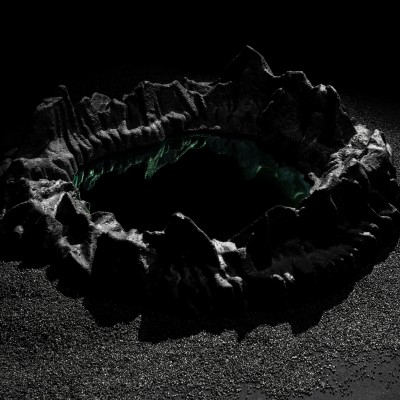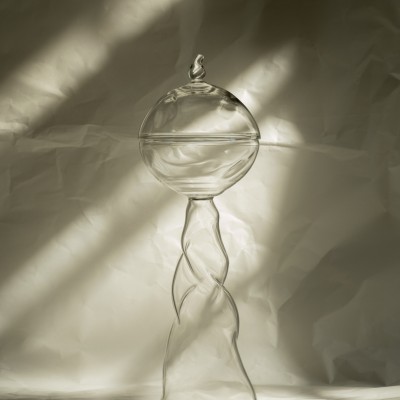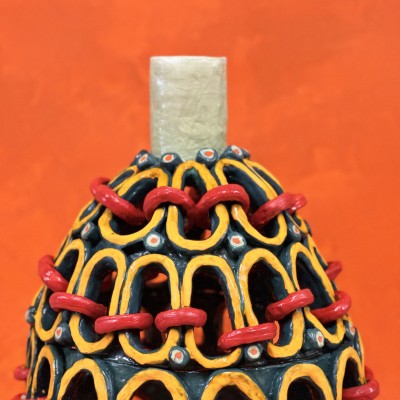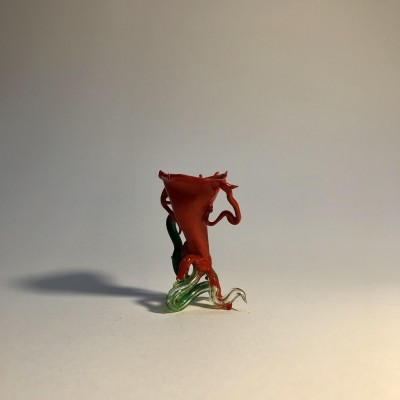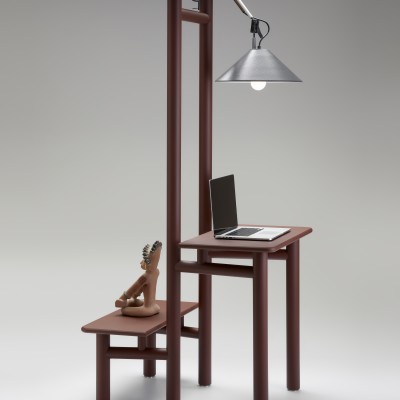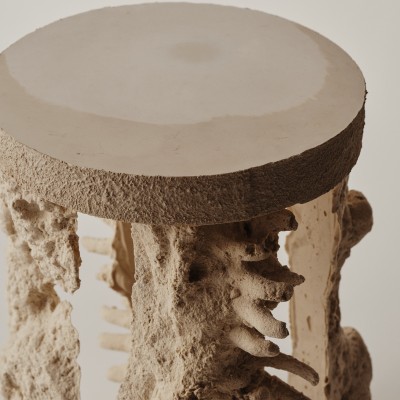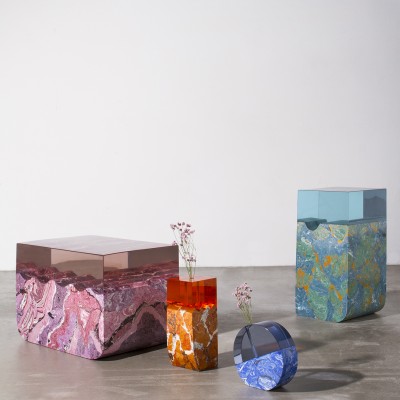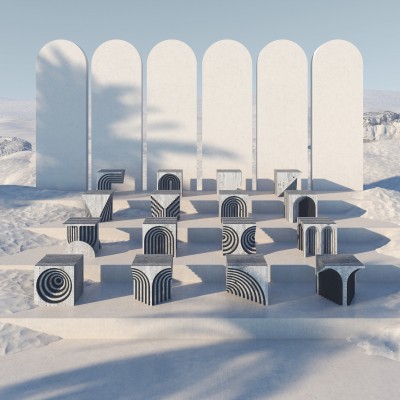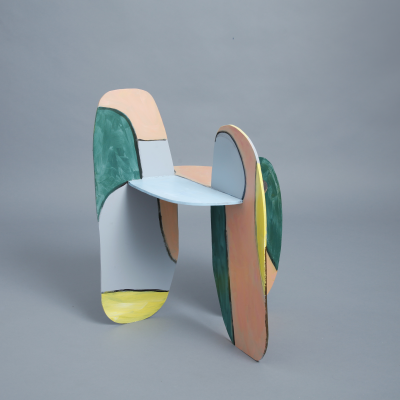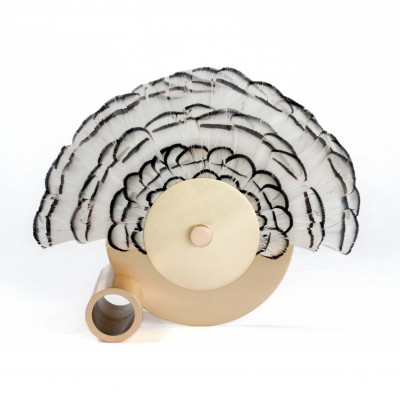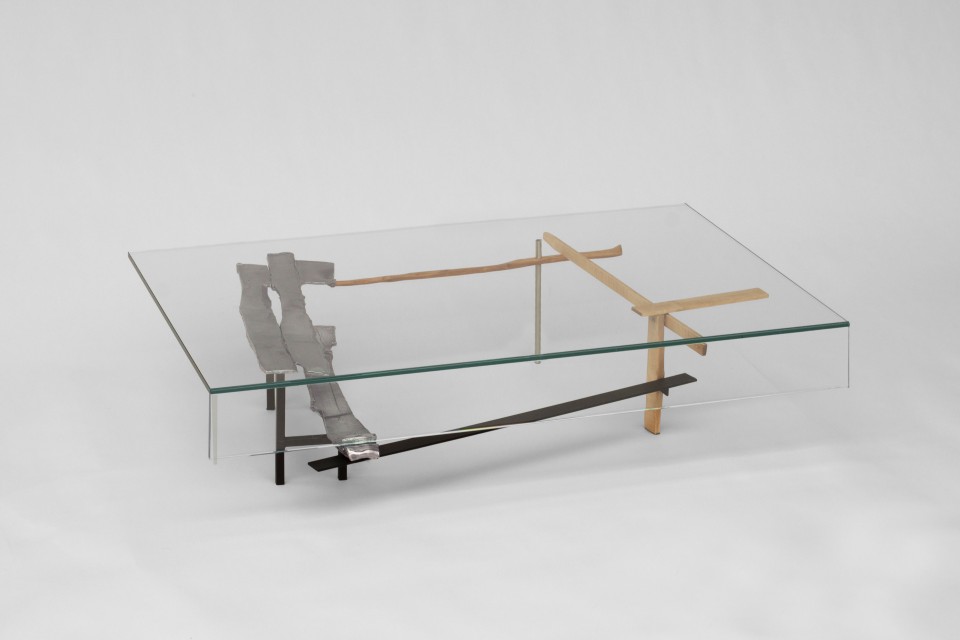
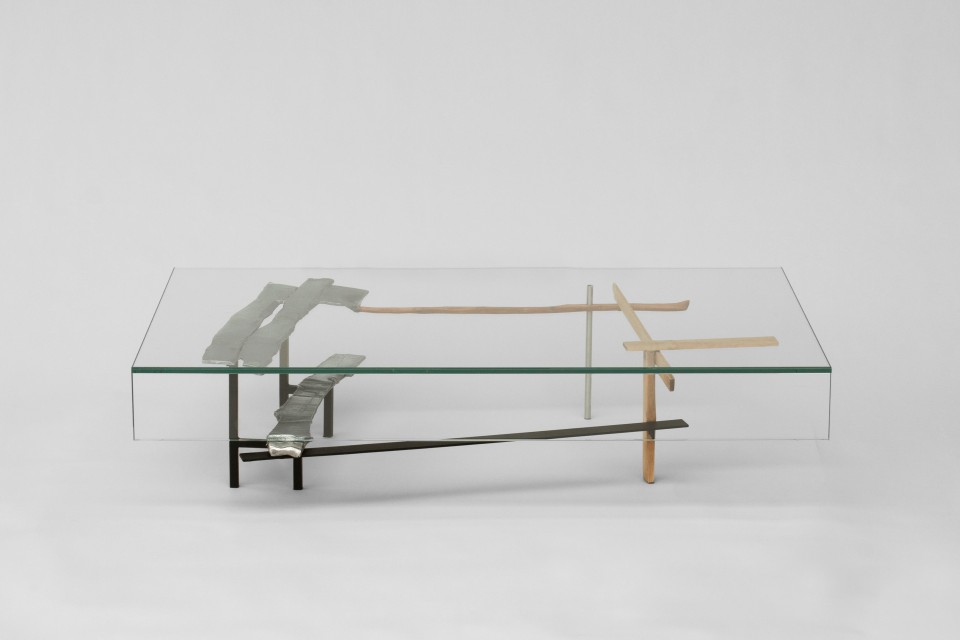
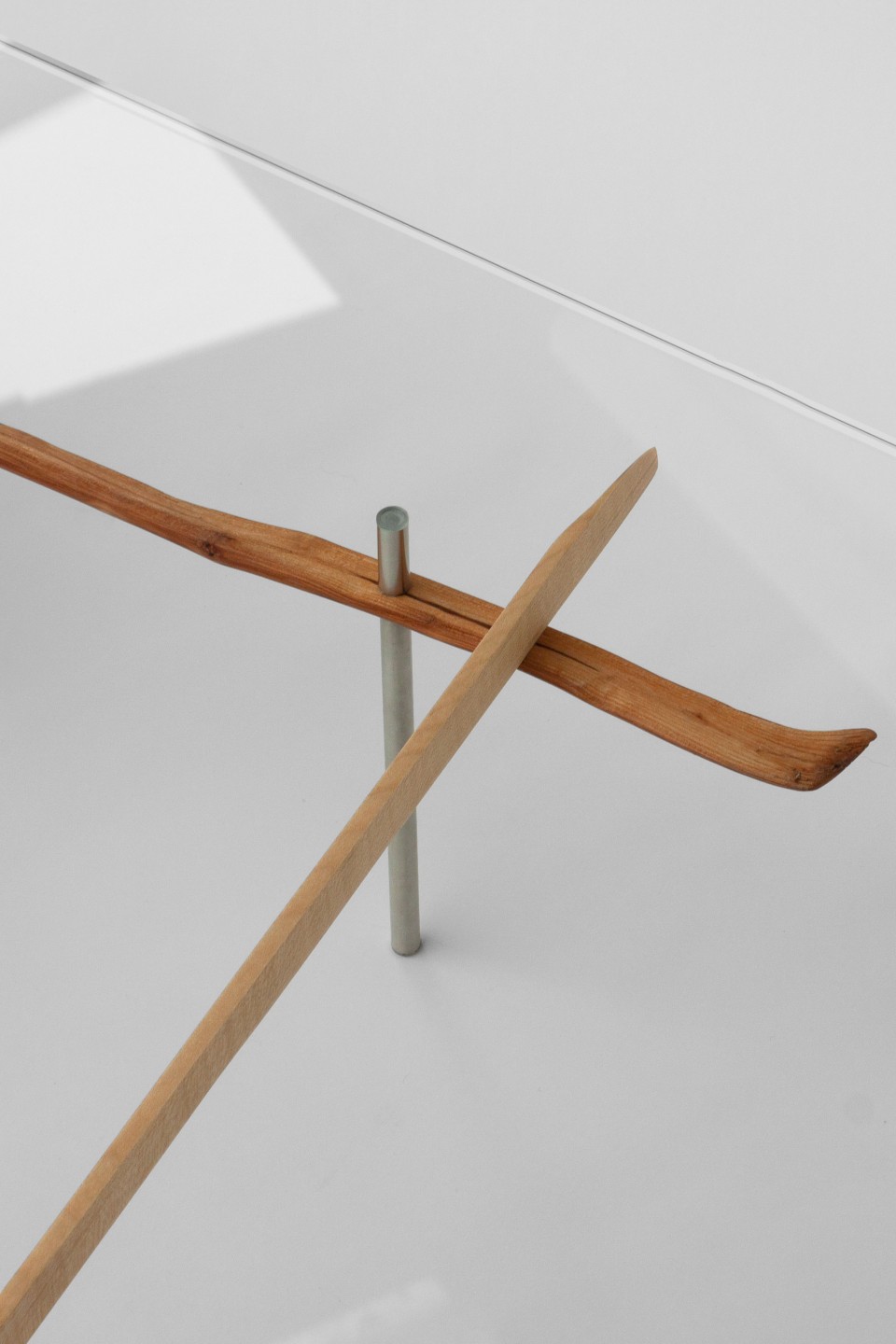
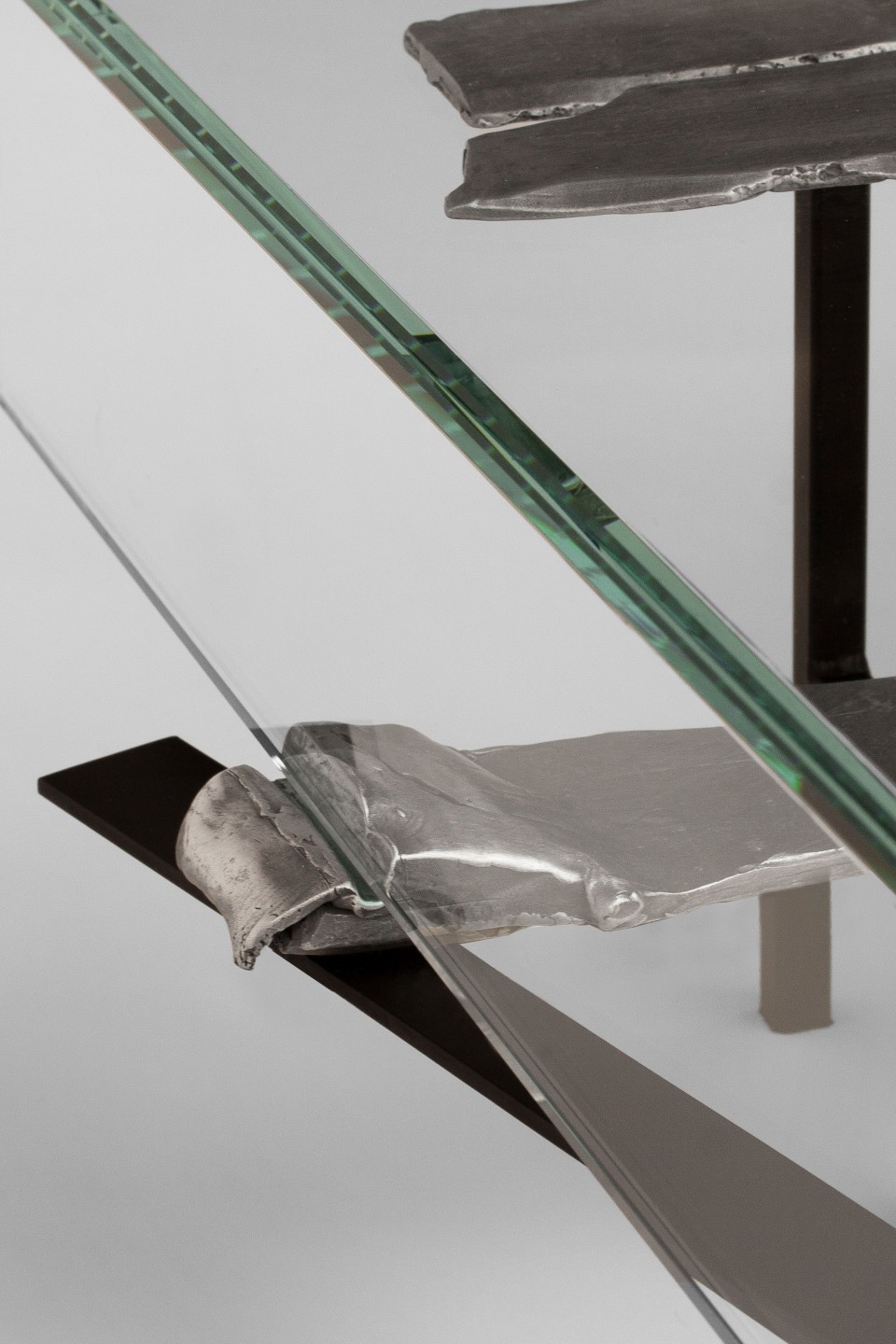
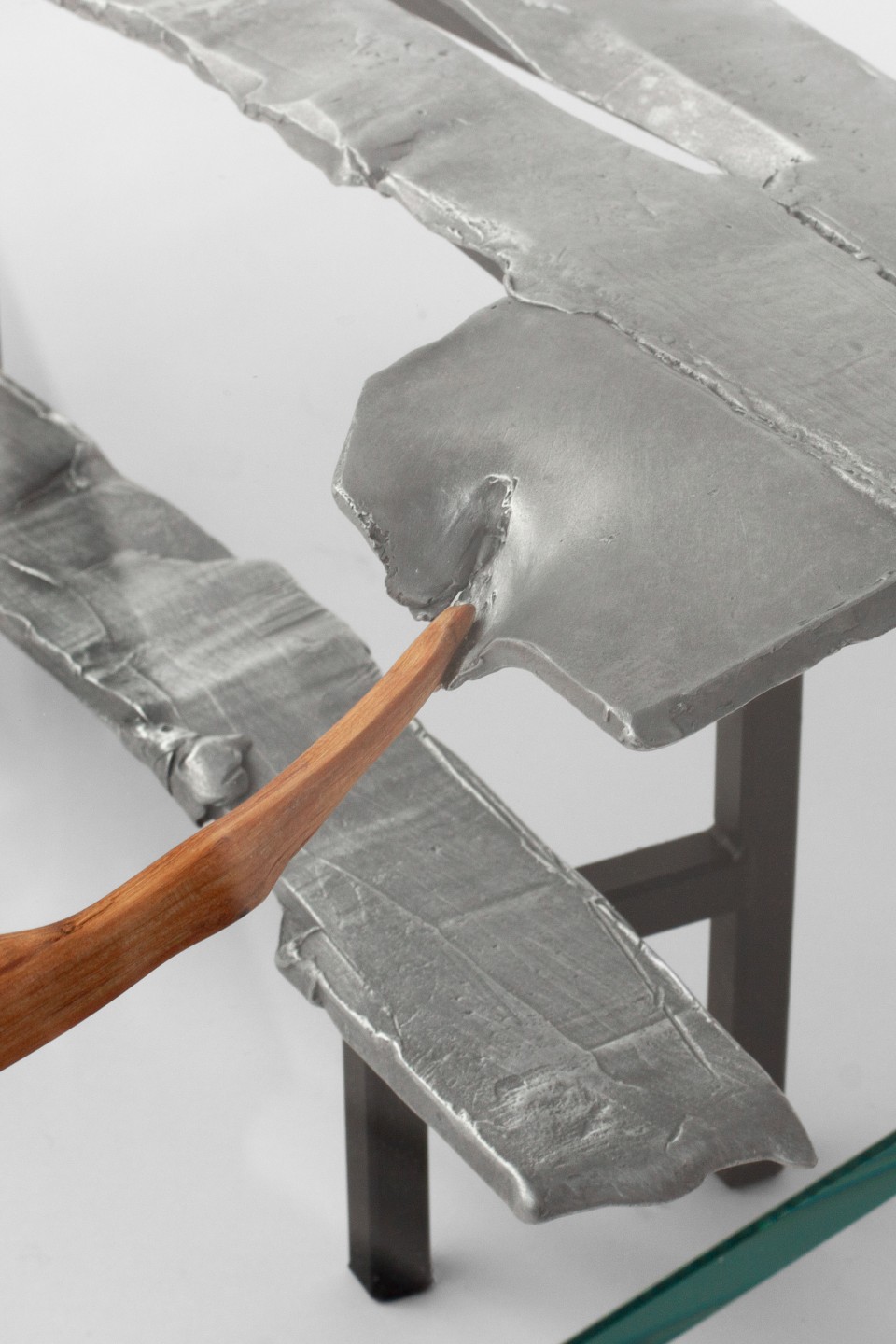
ABOUT
Grace Prince is a furniture designer and researcher based in Zurich. After graduating from Central Saint Martins in London, she gained experience in carpentry, marble carving and set design, eventually working as an assistant designer for Vincenzo de Cotiis in Milan. In 2022 she exhibited, in 5VIE her first two self-produced collections. The exhibition, titled "Entropy and Desire", was an ode to impermanence and fragility, in the charm-filled setting of a vacant store.
The entropy in the title of the exhibition is a measure of the chaos we can control with design. To what extent do you let entropy create? What does the ‘desire’ refer to, instead?
Desire because I feel our humanistic instinct is often to lean towards entropic chaos. For me, it has a lot to do with childhood nostalgia of ruination. I liked to take apart objects and re-assemble them. I feel there are poetics that sit behind this, in the real understanding of materials you have to look at its destruction. But the crucial interest for me is not to use found objects, as this would mean I wouldn’t have enough control, and the sensation I was to find would be predetermined. My aim is to create from new.
Since 2020 you have developed two collections of objects, ‘Unsettled Balance’ and ‘Static Fragility’. What are the next steps? What themes will you develop in the near future?
I’m currently working on my 2023 collection which researches the sensation of a ‘Displaced Line’. I’m not sure if this will be the title in the end, but it’s informing the research and development of the pieces. For this collection I want to work on a larger scale, so I’m building a room divider and a bench, as well as smaller objects.
Your creative process is very interesting, because the result is an assemblage that seems haphazard, but actually conceals long and meticulous planning. Your method creates a hinge between the naturalness of the artistic gesture and the replicability inherent in the discipline of design. How did it come about and how did you develop this approach? Again, it seems to be a matter of balance?
This approach began through collaging, eventually it became such a curiosity to see what these collages could look like and feel like if I brought them into real works. Each piece starts with a 2D collage, then moving into 3D through a slow sensory process of lightly juxtaposing forms and materials, always referencing back to the sensation first discovered in the collage.
You were born and studied in London, you have a research position in Zurich, you make your pieces in Milan. Three cities with three different souls that somehow have to coexist. It seems that your life also resonates with the theme of balance, which is underlying all your design research. Do you think there is an actual connection between your poetics and your biographical experience?
I’ve never thought of it this way, but I like the connection. Yes, I’ve never liked to stay too long somewhere. If you can, I think it's nice to keep moving. The downside is that you have to be extremely organised, but the upsides are that you are constantly expanding your ideas, mainly through talking to people who engage with your work differently.
RELATED PROJECTS
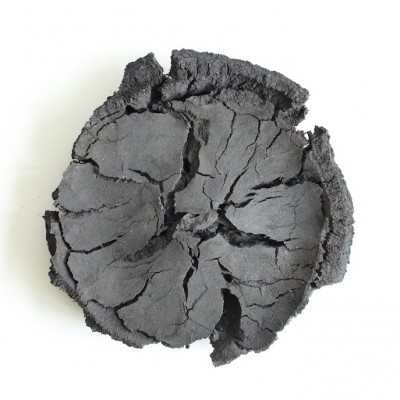
Exploding Plates
by Adam Knoche
category collectible design
town Dallas, TX
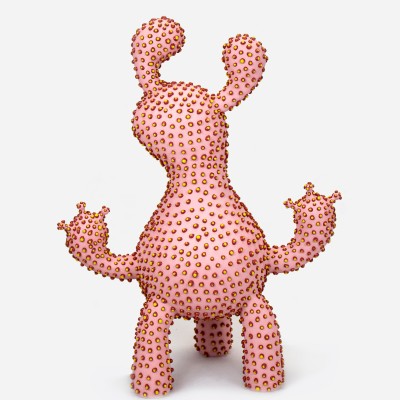
Ciao Mr. Ettore
by Ahryun Lee
category collectible design
town Essenbach, Germany
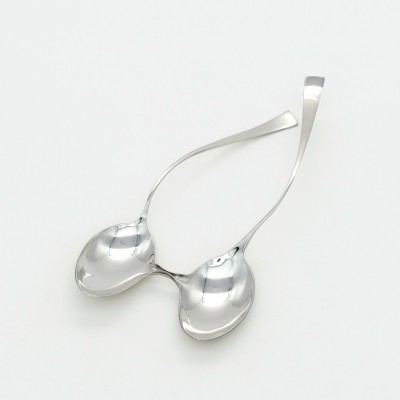
art spoons
by Haley Bates
category collectible design
town Fort Collins, Colorado
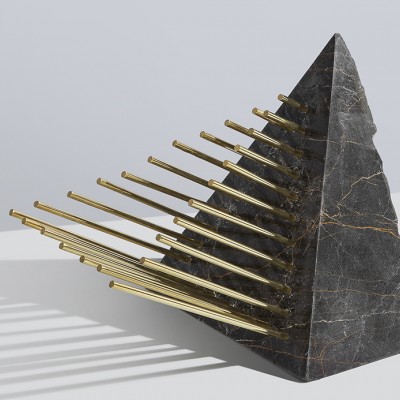
Objects
by Elham Nejati
category collectible design
town Teheran
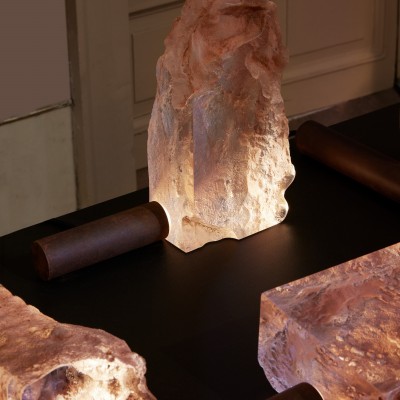
Solid Sand
by Milena Kling
category collectible design
town Berlin
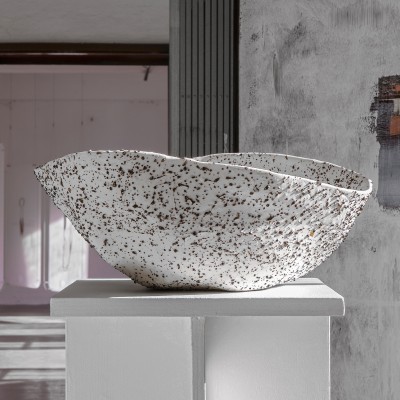
Telluride
by Tellurico
category collectible design
town Eindhoven
